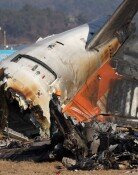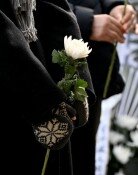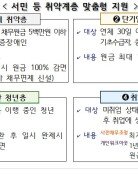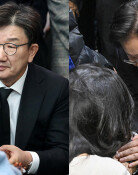Antitrust Charges Shock Chip Makers
U.S. antitrust charges against executives at Samsung Electronics and Hynix that include heavy fines and jail time have sent shockwaves throughout the domestic semiconductor industry.
Businesses in Korea called the charges unfair, as the executives would have to spend time in prison in addition to paying the hefty fines of $300 million and $180 million on Samsung and Hynix, respectively.
However, illegal cartel activity is considered a felony in the U.S. and the U.S. government holds any price-fixer accountable, be it a company or an individual.
Violators of antitrust laws in the U.S. might face not just a government crackdown but four civil lawsuits as well. Direct and indirect consumers, states where the products are sold, and overseas consumers are able to seek compensation for their loss. Direct and indirect consumers can claim compensation as much as three times the damages. Consequently, once caught fixing prices, companies might be trapped in a legal dispute for over a decade.
Last year, Samsung Electronics and Hynix agreed to pay $67 million and $73 billion, respectively, in compensation for civil charges brought against them. The amount is expected to be even higher as it is only part of the recompense the companies must pay.
The U.S. Justice Department said that it would work closely with the FBI to tackle corporate cartel activities when it announced guilty charges against the two Korean chip makers in March.
Washington also allowed wire tapping in the investigations into corporate price-fixing cases and illegal cartel activities in the same month it revised the Patriot Act.
Chairman SM Olivia of the Voluntary Trade Council in the U.S. said that the antitrust law has a WMD-like power now that the government added the wiretapping clause to the already controlling rule.
Half of the antitrust prosecutions in the U.S. since 1998 have been foreign companies, and 25 percent of prosecuted individuals were not Americans. Since 2001, the government can seek Interpol help for extradition of anyone on a price-fixing charge.
Washington sometimes puts pressure on foreign governments using strong diplomatic and economic power. Trade experts warn that fair trade regulations will jeopardize the national economy and export companies in doing business with the U.S.
Since the beginning of this year, the U.S. has opened investigations into antitrust activities on air freight transportation services. On its list are most of the airlines including Japanese and French airways as well as Korean Air and Asiana Airlines.
Washington also requested joint inspection with fair trade commissions in countries whose corporations allegedly engage in cartels. The Japanese Fair Trade Commission did not answer the call, but Korea joined the U.S. to resolve the issue.
Regarding this move, Wang Sang-han, a law professor at Sogang University, pointed out that Washington in an attempt to defend its people and the market economy ignores international law and other nations sovereignty.
Some said that strengthened regulations including the tapping of conversations of alleged price-fixers are designed to make up for the loss from the Iraq War.
However, professor Lee Ho-sun of Kookmin University said that U.S. antitrust law has positioned itself as a universal value in the global market though its history is short and often exploited to serve national interests.
wiseweb@donga.com







